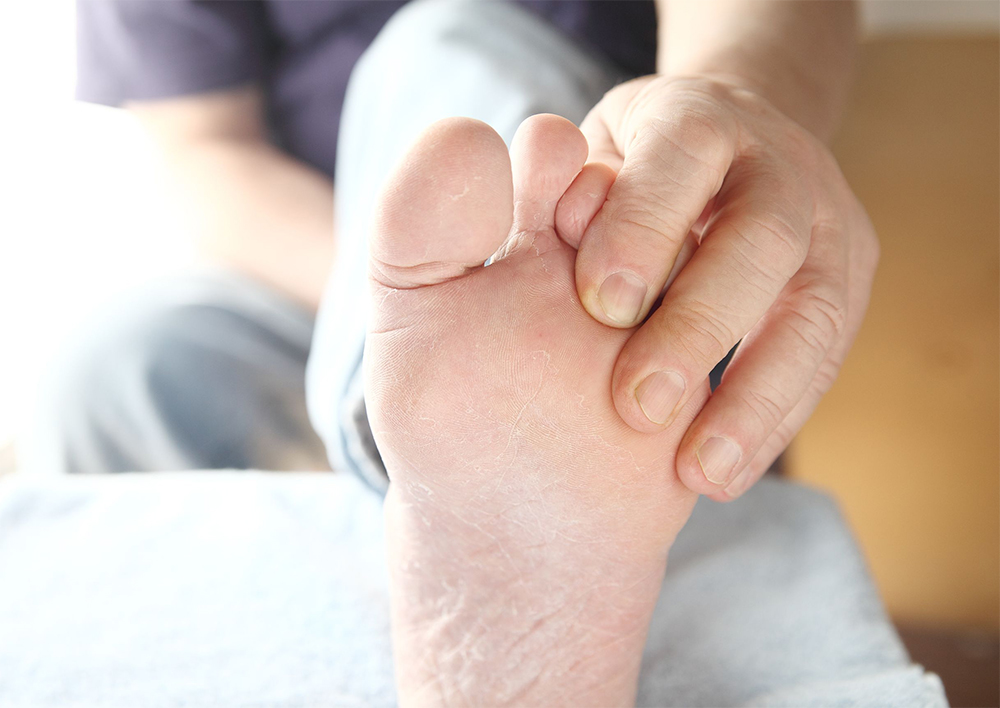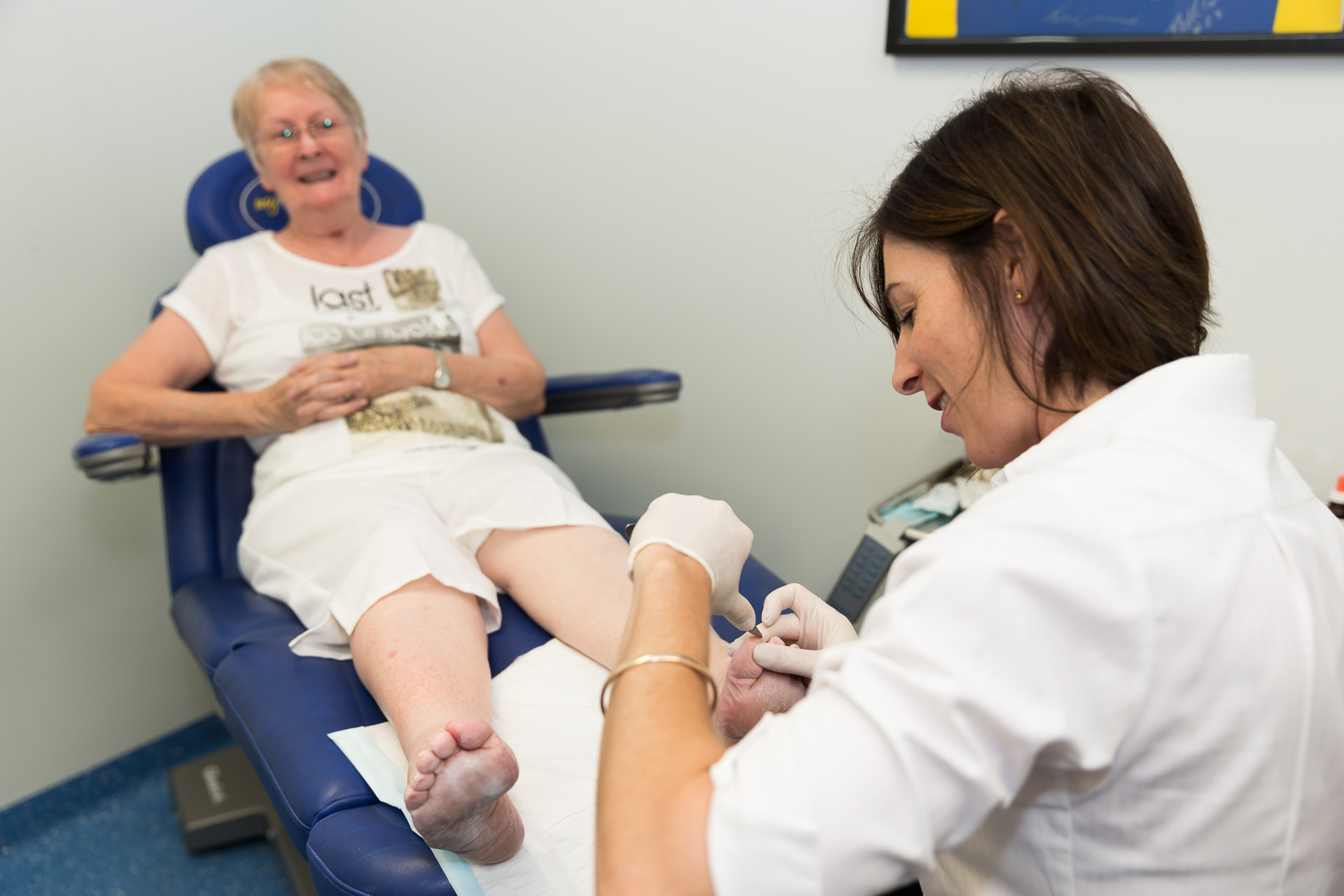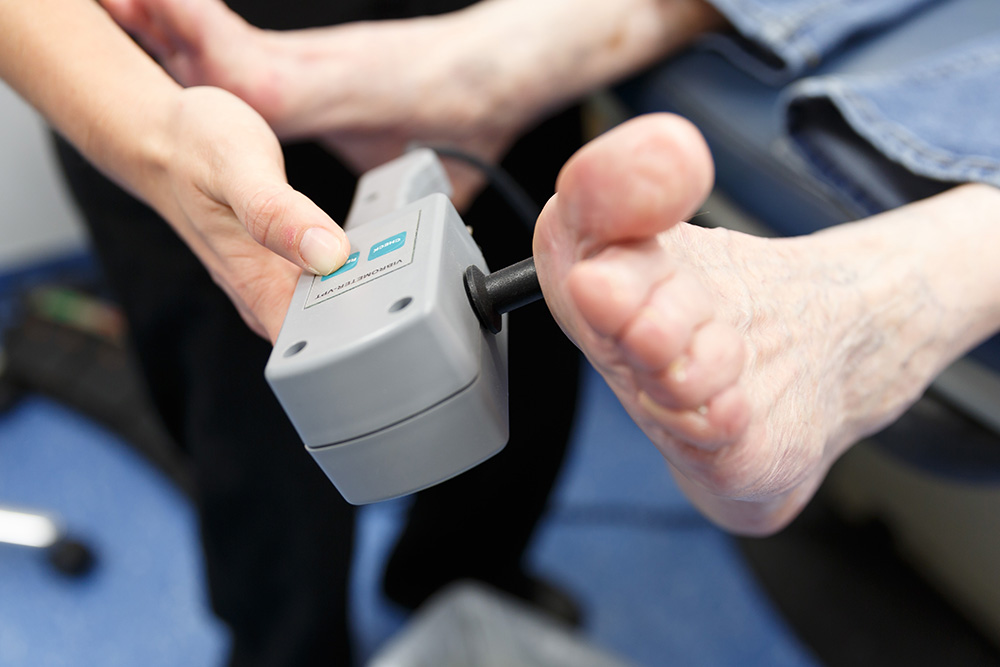
 Podiatrists are encouraging people with Type 1 and 2 Diabetes to book an annual checkup to help prevent diabetes-related foot amputations.
Podiatrists are encouraging people with Type 1 and 2 Diabetes to book an annual checkup to help prevent diabetes-related foot amputations.
According to The Diabetic Foot, on any given day in Australia, there are over 300,000 people at-risk of developing diabetes-related foot disease (DFD) with a shocking 50,000 people are living with DFD and 12,500 people living with a diabetes-related amputation.
An annual podiatry visit may be all it takes to prevent the more than 12 diabetes-related amputations performed at Australian hospitals every day.
As we participate in National Diabetes Week (July 8-14), this is the message we are sending not only to patients but also to carers of people with diabetes.
Around 1.7 million Australians live with diabetes, with people over the age of 55 more likely to have the disease. Unfortunately, 10,000 of them are admitted to hospital every year for diabetes-related foot ulcers, with a staggering 4400 ending up with a lower limb, or part of a limb, amputated.
How we can help with diabetes foot care
It is a clear indication that more education is needed around the importance of promoting foot health among Australians living with diabetes.
Prevent diabetes-related foot conditions
The good news is around 85 per cent of diabetes-related amputations are preventable if problems are detected early and a care plan and foot protection program is established.
People living with diabetes should establish a regular self-monitoring schedule (including visual checks) and have an action plan to respond to early problems (such as skin breakdown).
Diabetes Australia recommends a visit to the podiatrist at least every 12 months for diabetes sufferers, and more frequently for those who also have peripheral neuropathy, foot deformities or PVD. If your 12-month review has lapsed, make this week the time you do something about it.
How diabetes impacts your feet
While everybody is different, people with diabetes typically experience lower limb circulation reduction, loss of normal protective sensation to the foot and leg and an inability to fight infection via an impaired immune system.
Changes may be minimal such as noticing dryness of the skin around the toes or tingling of the toes at night. Eventually, this may progress to complete numbness along the sole of the foot, which results in loss of protective sensation and eventually ulcers. This can progress to foot or leg amputation if management is not adequate.
If you have diabetes, here are some simple tips to manage your foot health at home?
-
Wash and dry feet thoroughly daily
-
Visually examine your feet daily for marks, spots, cuts, swelling or redness (a mirror can help)
-
Choose correctly fitted shoes (ask your podiatrist what is best for your foot)
-
Wear cotton socks with no elastic in the tops to absorb sweat but reduce pressure on the foot
-
Visit your podiatrist annually or more frequently if recommended.
If you or someone you know suffers from diabetes, make feet the topic of conversation this week as you help us stomp out Australia’s foot problem.
Book an appointment online or call 1800 FOOTDR.





